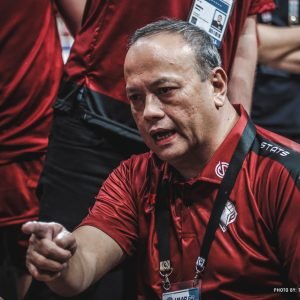
The greatest Shohei Ohtani playoff day was his first. That’s not to dismiss his overall postseason contributions—he had an uneventful World Series, and an amusing stretch of only getting clutch hits, but considering the sample size his numbers pan out as perfectly respectable, if not to expectation. Then again, the expectation was Ohtani’s typical narrative inevitability. Something like, say, in the very first game of the NLDS, when the Dodgers were down three runs in the second inning, and Ohtani smashed a high fastball from Padres ace Dylan Cease to tie the game in one swing. After six seasons without postseason Ohtani, suddenly there he was.
None of the other postseason days had quite the same feel as the first, due to a combination of Ohtani’s aforementioned perfectly respectable struggles and the Dodgers’ postseason tendency to win or lose games by large margins. But even when Ohtani wasn’t getting on base, he had presence. For one, there was that broadcast graphic counting down the batters until he would arrive at the plate. Then there was the shoulder injury scare. And because Ohtani is Ohtani, even his failures had import. In the fifth inning of the Dodgers’ series-clinching Game 5, Gerrit Cole struck out Ohtani’s fellow 80 FV prospect Gavin Lux with the bases loaded. Fine: It’s Gavin Lux. But then Cole struck out Ohtani, and that meant something. It’s a simple truism—big players make big moments feel bigger—but, well, there you have it.
In the end, as much as people can find the general misfortune of World Series stars ironic in an Alanis Morissette kind of way, MLB didn’t actually need Ohtani and future fellow MVP Aaron Judge to produce highlight-reel moments. Judge found his way getting there last night. He clawed back from statistical World Series irrelevance and helped win the game (at first) and then lose the series (eventually) for his team; Ohtani struck out with the bases loaded and won his first ring. Highlights and even lowlights are notable viewership perks, but stars, when big enough, even when doing nothing can still change how fans watch, just by standing there. For some, it felt a bit like a monkey’s-paw reward that Ohtani’s chosen contending team was the Dodgers, but after this: Wasn’t it worth it, even at the cost of Tungsten Arm O’Doyle?
The greatest Alanis Morissette irony of it all is that it happened so soon. Just last season, Ohtani was on the Los Angeles Angels—the Angels, who had made a necessary and failed effort at a postseason run. And now he’s hitting at the top of the lineup with two other future Hall of Famers, and Mike Trout’s still trapped across town. It’s an inverse of Bryce Harper’s free agency story, and a nice reminder that the mistakes you make when you’re 23, like signing with the Los Angeles Angels of Anaheim, don’t necessarily damn you for the rest of your life.
The whiplash of it all makes the entire situation still feel implausible: that Ohtani doesn’t need to break his back carrying his team for a game win, much less a series win; that a year after his Angels failed to reach the playoffs, Ohtani’s already won his first World Series; that Ohtani announced a dog, wife, and new interpreter in very short sequence. That sort of stuff just really shouldn’t happen. But, then again, it’s very Shohei Ohtani. The game’s already changed.
Implausibly, there’s still more to wait for. Ohtani is enough as a hitter that this year, you could easily forget that he pitches, too. Now imagine a postseason where his UCL is fully recovered, and he’s on the mound. That’s almost too good to hope for—unless you are affiliated with the Angels, in which case it’s too awful to consider.







